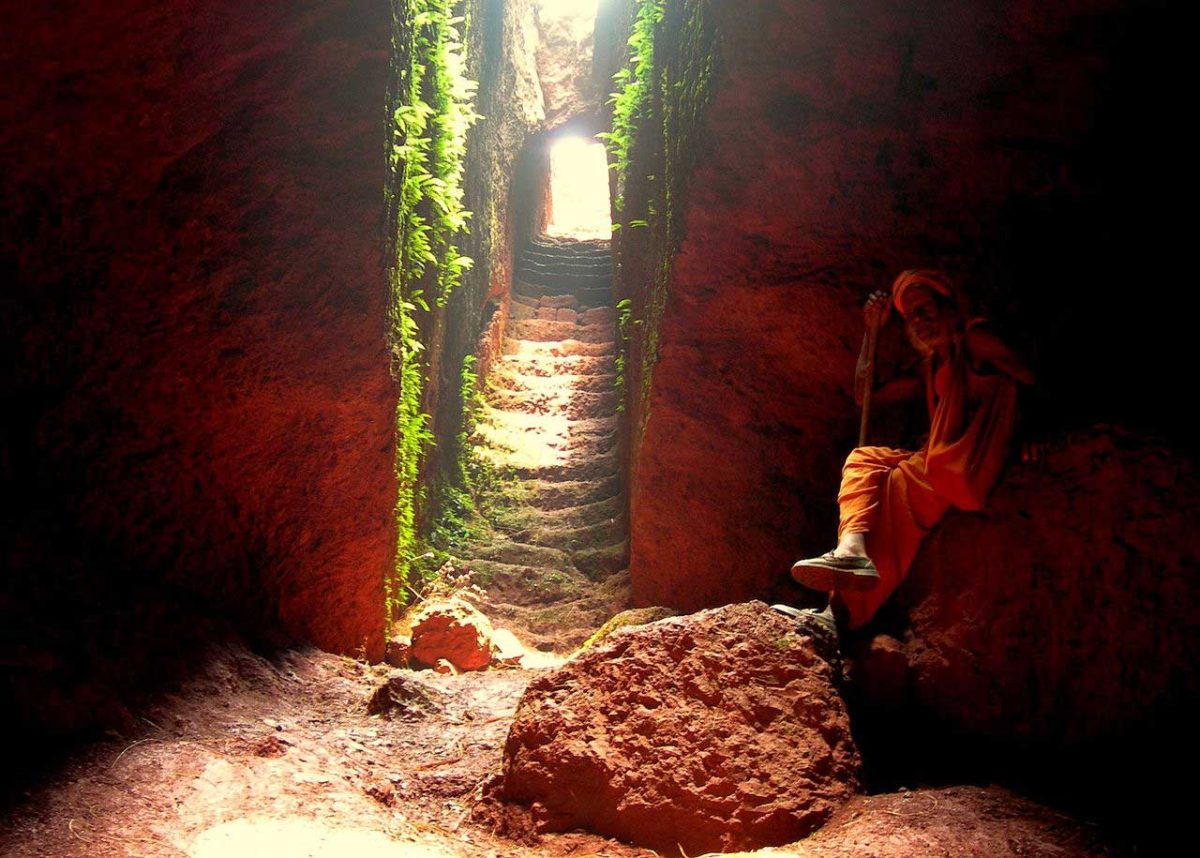Our birth distorts our vision and, leads us on an errand path away from the ultimate supreme principle.
`Sometime after we get conceived and when we are born, we have started our journey as a soul with our consciousness ensheathed within the causal, subtle and gross bodies. We are also born with our consciousness (spirit) in an innermost great causal sheath consisting of the ego (I-ness) and worldly consciousness (the memory bank of mind). This memory bank of the mind carries the impressions of all the past births based on karmic deeds. We are all born with this compact pack of identity. Later, we get other worldly identities of a name, family, community, caste, creed, religion, etc. All these lead to unintended divisive beliefs and actions.
Because of the belief system one is born into that gets firmly ingrained within, one’s religion or faith seems superior to all others. Unfortunately, religion starts exerting its superiority and takes centre stage even above God. Such firm beliefs and ignorant and misplaced understanding ultimately lead to divisiveness amongst people in the name of religion.
It is ironic that instead of uniting people (which is the essence of religions), religion divides people by creating strife, enmity and even bloodshed. By getting lost in the many intermediaries or lesser divinities, people never realize that all religions’ indication is about a common Ultimate Lord. Mahatma Gandhi had correctly put it when he said that God has no religion.
It is the same God who infuses life into all races and species. He is compassionate towards all living entities, and it is He who showers grace for all to prosper and flourish irrespective of the religion of birth and attachment to it. The message of all religions conveyed through incarnations, scriptures, or chosen messengers are about the Ultimate Principle. However, the custodians of religions have wittingly or unwittingly imposed their misplaced ideas on the religion or sect members.
In turn, the followers have chosen to limit themselves to a narrow faith or belief without ever questioning themselves or ever applying logic or reasoning.
It is not difficult to understand in this context that practitioners of Vedic culture of the Indian subcontinent believed in a single Brahman (Eternal God) and the Sanatana Dharma that followed was more of a way of life and not a religion. Aadi Shankaracharya who revived the Vedic culture had said that we, by our imagination, have tried to describe the Eternal God through songs and hymns, the one who is indescribable by human thought or imagination. He further said that we have confined that all-pervading omnipresent God within a temple or shrine’s four walls. According to him, Brahman is one Supreme Being, one without a second. He is infinite and eternal.
A possible reason for such ritualistic worship could be that ordinary human beings need a personal God to perceive the Ultimate and needed a song to express their prayer and a temple for worship. Beginners can use these methods for their initiation; however, they need to move ahead and realize the Supreme as the only reality.
There is an institution called ‘Sudha Sanmarga Sangham in Tamil Nadu. Sri Ramalinga Adigal founded it. He started this institution as a centre dedicated to the upholding of Truth. Saint Ramalinga Adigal moved away from being a staunch Shaivite and took to the Universal Truth path. He gave people many directions to distinguish between lesser achievements and beliefs and the realization and pursuit of the Ultimate Truth. Some of the principles advocated by Saint Ramalinga Adigal are:
- The Ultimate God is only one for all and should worship Him as a vast grace of effulgence
- Treating all souls as equal: Irrespective of caste, creed or religion, all are children of that Ultimate God. Same divinity resides in all souls, so realizing the connectivity should all live in unity and peace with a spirit of love and compassion.
- Be compassionate towards all fellow humans and also towards all the living things. So, no killing of animals and no eating of animals.
- The only way to reach God’s path is through simplicity, humility and not through rituals or extravagant form of worship.
- Creating awareness about the individual’s self-discipline
Let us follow these principles and find ourselves as members of one family headed by the Supreme God.





